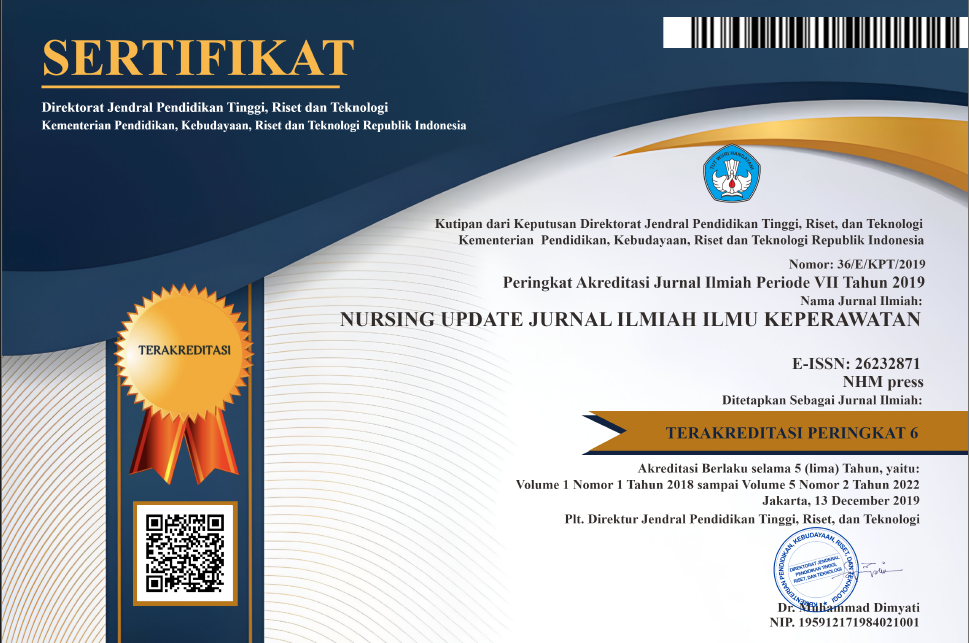PERBEDAAN SIKLUS MENSTRUASI DAN PENINGKATAN BERAT BADAN ANTARA AKSEPTOR KB SUNTIK 1 BULAN DAN AKSEPTOR KB SUNTIK 3 BULAN
Abstract
Injectable contraceptives have side effects, namely increased blood pressure, menstrual disorders, vaginal discharge, acne, weight changes, dizziness, headaches. Based on a preliminary study at Polindes Jatra Timur in January, out of 10 acceptors of 1 month injection KB 3 (30%) experienced menstrual cycle disorders, 3 (30%) experienced weight gain and of 10 3 month injection KB acceptors 5 people (50 %) experienced menstrual cycle disorders, amenorrhea, 4 people (40%) experienced weight gain. The purpose of this study was to determine whether there was a difference in menstrual cycles and weight gain in the use of 1-month injectable contraceptives and 3-month injections at Polindes Jatra Timur.
This study uses an analytical method with a Cross Sectional approach. The independent variable is the injectable family planning acceptor, while the dependent variable is the menstrual cycle and weight gain. The total population is 76 with a sample of 64 injection kb acceptors. The sampling technique used simple random sampling, the research instrument used an observation sheet. Statistical test using the Mann Whitney test. This research has carried out an ethical feasibility test carried out by KEPK STIKes Ngudia Husada Madura.
The results of statistical tests using the Mann Whitney test showed that p = 0.024 showed that there was a difference in menstrual cycles between acceptors of 1 month injection KB and 3 months injection KB. While the results of statistical tests using Mann Whitney, the difference in weight gain, the results p = 0.047 showed that there was a difference in weight gain between acceptors of 1 month injection KB and 3 months injection KB.
This research is expected to provide This study is expected to provide an overview of mothers in choosing the use of injectable contraception.











